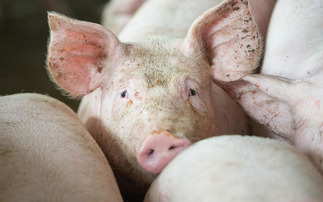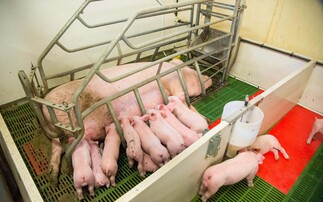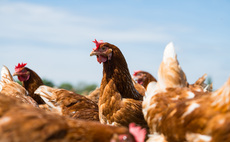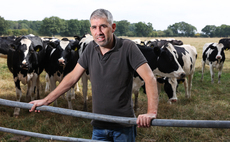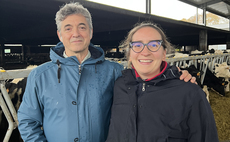
"BTV outbreaks in Europe are on the rise and we must remain vigilant to the threat of disease spread."
A growing number of bluetongue outbreaks have been reported in Europe with farmers urged to remain vigilant to signs of the disease in the UK.
Defra said there have been 4,000 cases of bluetongue virus (BTV-3) in the Netherlands, Germany and Belgium since May 2024.
On top of this, the first ever cases of BTV-3, primarily transmitted by infected midges, have also been confirmed in France, Luxembourg and Denmark.
READ NOW: Warmer weather increases bluetongue risk, says Chief Veterinary Officer
Between November 2023 and May 2024, there have been 129 cases of bluetongue confirmed on farms in Kent, Norfolk and Suffolk.
Christine Middlemiss, the UK's Chief Veterinary Officer, has call for 'renewed vigilance and responsible sourcing of livestock' while the risk level of incursion into Great Britain remains at 'medium'.
She said farmers should continue to monitor their animals frequently for clinical signs and are reminded of the vital importance of responsible sourcing of animals with a reliable health status.
"BTV outbreaks in Europe are on the rise and we must remain vigilant to the threat of disease spread," Ms Middlemiss added.
"If you suspect disease in your animals please report it.
"If you intend to move animals to live out of high-risk counties, including buying in new animals, please take advantage of the free testing scheme to help stop the movement of non-clinical disease.
"Bluetongue does not pose a threat to human health or food safety, but the disease can impact livestock farms, and damage animal and business productivity."
Animal and Plant Health Agency interim chief executive Jenny Stewart also provided further details about the oubreak in Europe.
She said: "Our latest outbreak assessment sets out the scale of bluetongue cases across Europe and underlines how important it is for farmers and animal keepers to monitor their livestock and to take up the offer of free testing where necessary.
"Our scientists, vets and field teams stand ready to tackle an outbreak of bluetongue virus and ensure farmers are kept up to date and supported."
Defra said free testing is also available for animals moving from the highest risk counties of Norfolk, Suffolk, Essex, Kent and East Sussex to elsewhere in Great Britain.
Suspicion of BTV in animals in England must be reported to the Animal and Plant Health Agency on 03000 200 301.
READ NOW: Vaccination in the Netherlands critical to preventing UK bluetongue outbreak









